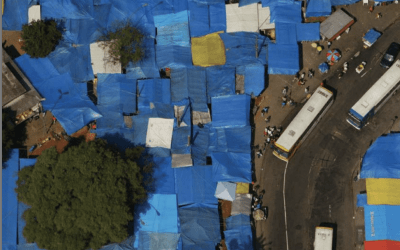Equitable Global Research Collaborations
When the Sum is Greater than the Parts
An American working on scientific research in the Amazon is not an easy thing. First, there is the special research visa and the requirement to remove nothing of the Amazon forest from the political borders of Brazil. This requirement is motivated by the Brazilian national interest to protect the biological treasure chests locked within the genetic DNA biome as some international corporations have previously harvested rainforest biological products for commercial developments of pharmaceuticals (probably not an exaggerated concern!). Second, there is the rule by the Brazilian armed forces against Americans flying on research aircraft for fears of espionage (probably an exaggerated concern!). Third, there are mosquitos bigger than the U.S. domestic variety, roads regularly washed out in wet season, and an absence of quite a few conveniences.
Yet we Americans go again and again.
A Brazilian working with a U.S. scientist is not an easy thing. There are differences in language and culture as well as distance, all of which hamper and slow communication and potentially reduce a Brazilian’s research productivity. There are unfortunately condescending and insulting prejudices of the quality of Brazilian science among some U.S. scientists. The research material is inherently Brazilian in nature (e.g., the Amazonian forest), so the Americans at the face of it bring little of value to the research table.
Yet Brazilians continue to engage Americans again and again in Amazonian research interests.
Therefore, something must be afoot that Harvard and Brazilian scientists come together on many common problems time and time again. What makes for successful experiences for both parties? Fundamentally, Brazilians and Americans must have figured out, mostly by trial and error, those aspects that underpin equitable relationships and drive them together again and again. I will share in this article a few thoughts of what motivates me.
Foremost, Brazilians and Americans start by losing those nationalist distinctions and recognizing themselves just as human scientists driven by what drives all scientists and binds us in an international community: curiosity about Nature. Therefore, equity begins with recognition of our equal status and mutual respect. With that attitude in place, we then must progress into the challenges of modern societies that place barriers in the way of our common science, such as passports, customs and other restrictions. We also must make progress that the costs of research put in place, from travel to salaries to equipment. All scientists share those challenges and, in a wonderful international community, we all rely on and help each to transcend and succeed to our common purposes.
What are examples of how this plays out in reality? I will spend my sabbatical year at the University of São Paulo, including a month long deployment in January 2008 in Amazonia to study the connections among vegetation, atmospheric particles, clouds and, ultimately, rainfall. To do so, I will need a host, and I have a great one. Paulo Artaxo has worked on atmospheric particles in Amazonia for more than two decades. By hosting me, he increases his own research productivity because we will engage in common projects and co-author publications. I in turn obviously gain by having a front row seat for exploring my scientific curiosities. Each of our experiences would be diminished without the other. That is the key, in my view, to equitable, sustainable and desirable collaborations.
The examples along these lines continue. Artaxo maintains a research site in Amazonia (see figure). I will bring a recently developed aerosol mass spectrometer to the continent of South America for the very first time ever. Artaxo is very animated to have a look at the new data we will collect there. I could not possibly do the work without the experience, infrastructure, and connections that Artaxo has in Amazonia. Moreover, the back-and-forth between his and my scientific expertise in the lead-up to the deployment challenges each of us and strengthens and focuses the scientific purposes and actual measurements we will do on site. This scientific relationship is equitable, in my view, because we both hold valuables that we are lending to the other.
And the examples continue, much beyond the science and the professors discussed above, to the education of students and the development of human capital. In the United States, my colleague Steve Wofsy and I have made a proposal to the National Science Foundation for undergraduates and graduate students to spend time doing research in Brazil. This proposal serves the U.S. national interest because a major gap has been identified in the international education of U.S. scientists and engineers by the National Academy of Sciences (“Rising Above the Gathering Storm: Energizing and Employing America for a Brighter Economic Future,” Committee on Prospering in the Global Economy of the 21st Century: An Agenda for American Science and Technology, 2006). Of course, we really had to ask a deep question in preparing this proposal of why our Brazilian colleagues would be motivated to work with us on this. Although it is true that several of our colleagues’ students have later come to Harvard as graduate students (benefiting us greatly), those educational efforts were independent of this new proposal, and we needed to find a motivation that could rally support from Brazil. We realized in the end that it would be about providing research resources, i.e., exactly what motivates us here. Therefore, we proposed that U.S. graduate students would spend a year in Brazil, working in our colleagues’ groups, and those students could mentor undergraduates who, naturally, would spend shorter amounts of time there. When we made this proposal to our Brazilian colleagues, they reacted positively for exactly the same reasons we would have if a similar proposal had come to us: an opportunity to benefit from hard-working, intelligent graduate students working on a common research question for a year. Of course, the graduate students would benefit immensely by, like me, getting front row seats for their thesis work as well as having wonderful international experiences. For all of the involved parties, clear benefits were obvious. I have found that to be the basis of sustained and successful international scientific collaborations, which, although I am not an ethicist, I believe is a self-evident criterion for demonstrating equity.
Spring 2007, Volume VI, Number 3
Scot T. Martin, Gordon McKay Professor of Environmental Chemistry at Harvard University, will spend his sabbatical year in 2007/8 at the University of São Paulo working on the connections among Amazonian vegetation, atmospheric particles, and clouds. He teaches an introductory course, “ES6 Environmental Science and Technology,” in the College.
Related Articles
Violence Against Women in Brazil: Public Policy and its Implementation in Rural Areas
English + Português
Eight o’clock in the evening—it’s time to gather and watch the national news program in Rio de Janeiro, Brazil.
2022: Uma Encruzilhada Histórica
English + Português
Este segundo turno da eleição 2022 no Brasil é um embate histórico entre visões de mundo. Entre concepções de vida e seus sistemas de valores. Você vai eleger (etimologia: escolher) em que mundo seria concebível viver.
Editor’s Letter: Brazil
Brazil is different. Brazil is huge. Brazil is colorful. Brazil is magic. In Brazil, the people speak Portuguese instead of Spanish.




